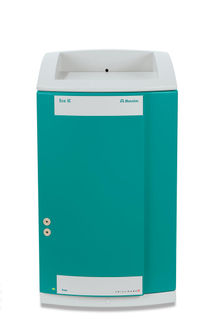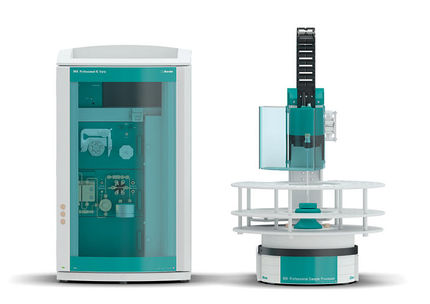To use all functions of this page, please activate cookies in your browser.
my.chemeurope.com
With an accout for my.chemeurope.com you can always see everything at a glance – and you can configure your own website and individual newsletter.
- My watch list
- My saved searches
- My saved topics
- My newsletter
TuinalTuinal is the brand name of a combination drug composed of two barbiturate salts (secobarbital sodium and amobarbital sodium) in equal proportions. Product highlightTuinal was introduced as a sedative medication in the late 1940s by Eli Lilly. It was produced in gelatin capsule form for oral administration. Individual capsules contained 50mg, 100mg, or 200mg of barbiturate salts. Eli Lilly has discontinued the manufacture of Tuinal in the United States due to the diminishing use of barbiturates in outpatient treatment. Currently Ranbaxy Pharmaceuticals is the sole producer of this barbiturate formulation. In the United Kingdom, Tuinal, Seconal and Sodium Amytal are manufactured by Flynn Pharma of Ireland. Amytal has been discontinued, though Sodium Amytal remains. AbuseTuinal (or Tuinol as it is sometimes colloquially misspelled) saw widespread use as a recreational drug in the 1960s and 1970s. The pill was known colloquially under the street name "Christmas trees," a reference to the unique color scheme of the capsule. Like other barbiturate depressants, Tuinal promotes physical and psychological dependency and carries a high risk of overdose. Abuse of this particular drug tapered off after it was withdrawn from the market. Tuinal is classified as a Schedule II drug under the Controlled Substances Act in the United States. TriviaIn a scene from the Stephen King novel Pet Sematary, the main character, Dr. Louis Creed, swallows a Tuinal to calm himself down. Creed then recalls a friend from medical school with a particular fondness for Tuinal, which the friend dubbed "the Toonerville trolley," or "tooners" for short. In "The Old Main Drag", a song from The Pogues' 1985 album Rum, Sodomy, and the Lash, the drug is name-checked: If you didn't have the money, you'd cajole and you'd beg / There was always lots of Tuinal on the old main drag. In the Hawkwind song "Lost Johnny", the drug appears in the verse "We're all taking Tuinal to murder our young dreams." Later, when Motörhead performed the song, the verse became "We're all shooting Tuinal to murder all your dreams." In John Betjeman's poem "Shattered Image" (1970), an accused child molestor wonders how many of his Tuinal - used, presumably, as a recreational depressant - it will take to kill himself. In Grace Paley's poem "On the Fourth Floor" a boy screams to his girl that of sixteen Tuinal, he cannot account for two. In Andrew Holleran's novel Dancer from the Dance (1978) a case of overdose in a discotheque is mentioned: "The boy passed out on the sofa from an overdose of Tuinols [sic] was a Puerto Rican who washed dishes in the employees' cafeteria at CBS, but the doctor bending over him had treated presidents." (40) In The Ramones song Psycho Therapy, Joey Ramone sings in the second verse "I like taking Tuinal / It keeps me edgy and mean / I'm a teenage schizoid / I'm a teenage dope fiend". The Queers song Feeling So Groovy has the verse "I'm really not that dumb you know / got lots of beer and Tuinals". In the movie Fight Club, Jacks' narration refers to "red and blue Tuinals" when he sees the doctor about his insomnia. In the Lou Reed song "New Sensations" he sings "It's easy enough to tell what is wrong, but that's not what I want to hear all night long, some people are like human Tuinals." Irish singer Shane McGowan references the drug in "The Old Main Drag" from The Pogues' "Rum, Sodomy & The Lash" album. The song, about McGowan's time as runaway on the streets of London, contains the lines "In the cold winter nights the old town it was chill / But there were boys in the cafes who'd give you cheap pills / If you didn't have the money you'd cajole and you'd beg / There was always lots of Tuinal on the old main drag" American writer/poet/singer Jim Carroll is reputed to be the voice heard asking an anonymous patron about the availability of Tuinals between songs on The Velvet Underground's "Live At Max's Kansas City" album. References
|
| This article is licensed under the GNU Free Documentation License. It uses material from the Wikipedia article "Tuinal". A list of authors is available in Wikipedia. |







